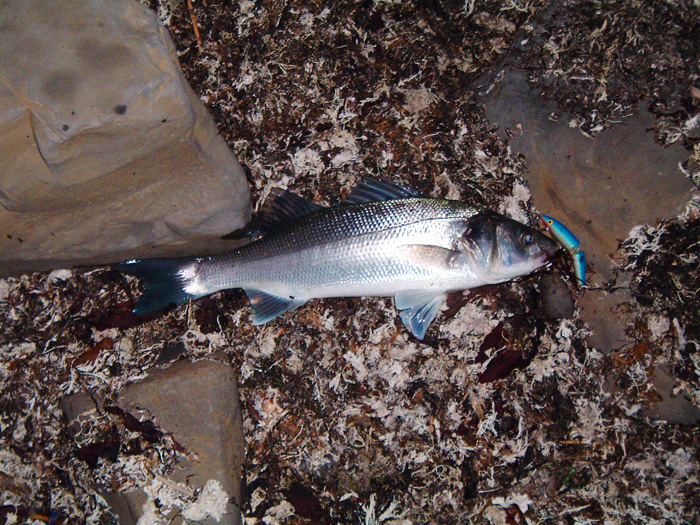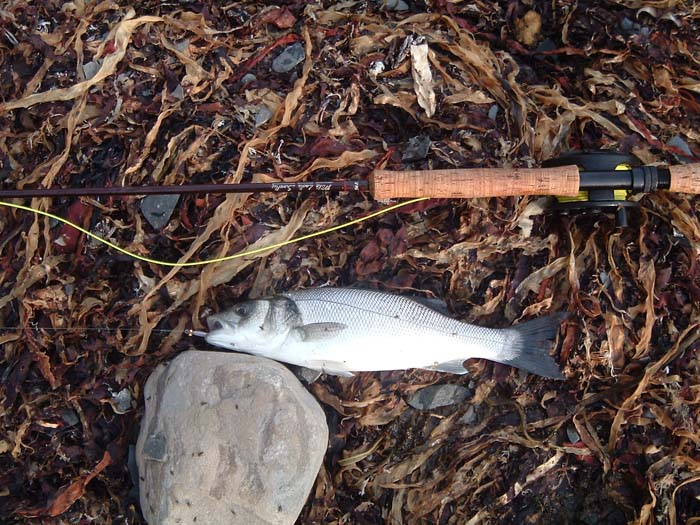 '
'Information Page.
The best bass lures.
This piece is not quite what it seems. I'm no great surfer of the internet but the other day I had cause to look at one or two bass fishing blogs/web pages. As a rule they have some sort of list of lures which the blogger 'recommends' as being sure fire bass catchers and, no doubt, on the whole these gadgets all work. That is to say they all catch plenty of bass given the correct circumstances. However, simply catching bass is not the only thing to consider, particularly if you are new to the sport so here are a couple of thoughts on the subject.
Firstly there is the matter of price. No one should be deterred by the fact that a lure costs a lot if it is head and shoulders above all the others but if there is such a thing I've not found it. When you are new to bass 'lure fishing' you are quite likely to make the odd mistake which results in a snagged and/or lost lure. If the said lure happens to have cost you twenty or (perish the thought) thirty pounds (yes, some do) it can be off putting to say the least. I could well imagine a newcomer to the sport losing a couple of plugs on the first trip and giving the whole thing up as a bad job. So, keep it simple. Stick to relatively cheap and reliable lures for starters. For distance over snag free ground a Toby at £2 to £3 can be very effective. For run of the mill fishing over broken ground in shallow water a J11f Rapala (less than £9) is still a sound investment and will catch lots of bass. Unjointed Japanese Marias are not much dearer (say£10-11), are weighted to cast further and they fish shallow, so they are also pretty safe bets. If it is really shallow, weedy and snaggy and you want to keep the lure right on the surface try a Chug Bug, less than £8 and a good fish catcher. Finally, in extreme snaggy conditions, invest in one or two 7" Slug-Gos (about £1.40 each) which can be fished virtually weedless
Of course price isn't everything but all the above will (a) catch bass and (b) are reasonably well made and reliable. Quite apart from cost and fish catching ability you should also consider safety. I'm no wimp and over the years I've hooked (and unhooked) myself on a number of occasions but I'm still wary. When I take my children or grandchildren lure fishing I've always been inclined to set them up with single hooked eels and the like to reduce the chance of an accident. Recently a fair number of the plugs and poppers coming on the market seem to be fitted with THREE trebles - a certain recipe for a trip to A&E unless you are meticulous in the use of pliers for unhooking. In addition these three-hooked (nine-pointed)lures frequently cause irreparable damage to the fish. Eyes, fins, gills and bellys can be wounded beyond repair by spare trebles in the course of the struggle. This is not too bad provided you don't want to return your fish alive. However, there is no guarantee that the bass which takes your lure will be big enough to keep even if you are aiming to do so and I'm sure that no serious angler wants to injure fish of any size so in my opinion two trebles should be the maximum.
Well, that's my little rant. My advice to anglers new to the sport is - keep it simple and keep it cheap. My advice to all bass anglers, however experienced, is avoid lures with three trebles. In any event, always take the utmost care when unhooking your catch. Believe me, if you don't sooner or later you'll regret it.
If you have any comments or questions about fish, methods, tactics or 'what have you.'get in touch with me by sending an E-MAIL to - docladle@hotmail.com
Plugged.
 '
'Single hook.
 '
'